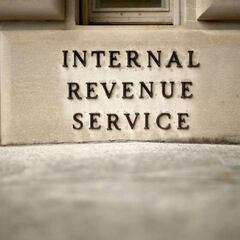Second stimulus check: how many people would get it?
The Heroes Act would expand the coronavirus stimulus payments to some 4.3 million adults with Individual Taxpayer Identification Numbers, pushing the total number well past 150 million people.


A total of 150 million Americans were eligible for the first round of stimulus checks to avoid economic hardship caused by the coronavirus pandemic. As of 11 May the IRS had paid out 128.3 million of the stimulus checks.
The CARES Act provided for the $1,200 stimulus checks (technically called Economic Impact Payments) for eligible individuals, with that figure of 150 million Americans qualifying for a stimulus check. Singles earning under $75,000 and families and couples earning under $150,000 got the full amount, with a taper up to a cut-off of $99,000 for individuals and $198,000 for couples.
About 88% of Americans who are 18 or older earn $75,000 or less per year, so the vast majority of adults are getting the full amount.
Check out how many people are getting stimulus payments in each state.
Heroes Act calls for second round of stimulus checks with more people eligible
The Democrat sponsored Heroes Act (Health and Economic Recovery Omnibus Emergency Solutions), which was passed by the House of Representatives on Friday 15 May, calls for a total of $3 trillion in funding to cope with the coronavirus pandemic, and within that a second round of $1,200 stimulus checks with broadly the same conditions applying as to the first round. However there are a number of changes to the eligibility rules which, if the Act becomes law, would see the number of people eligible for the stimulus checks expanded.
CARES Act:No social security number, no stimulus payment
The CARES Act deliberately excluded undocumented immigrants without a social security number from claiming a stimulus check. The Heroes Act would get rid of this requirement to have a social security number, instead allowing claimants to use their Individual Taxpayer Identification Number. What's more, the Heroes Act would retroactively do away with the requirement for a social security number for the INITIAL round of stimulus checks too, opening it up too to those with an Individual Taxpayer Identification Number.
The Institute on Taxation and Economic Policy (ITEP) calculates that 4.3 million adults, together with 3.5 million children, would benefit from this change. The total payments would be worth $9.4 billion in new economic payments and $7 billion for retroactively opening up the CARES Act round of stimulus checks to filers with Individual Taxpayer Identification Number and no social security number.
Undocumented immigrants pay taxes
It's important to remember that while undocumented immigrants may lack papers, many pay taxes using the Individual Taxpayer Identification Number system that was introduced by the IRS in 1996 to process taxpayers without a social security number. In 2015 alone, four million individuals paid over $13.7 billion in taxes using Individual Taxpayer Identification Numbers.
As ITEP said in its analysis: "The HEROES Act remedies the CARES Act... which required every member of a household to have a Social Security Number, excluding millions of undocumented immigrants and their children and spouses, many of whom are citizens, from payments," It continued, "undocumented immigrants are living here, enriching our communities, contributing to our economy and some are working in jobs that public officials have declared essential. Excluding them is callous."
Republicans angry over stimulus checks expansion
Apparently forgetting that undocumented immigrants pay taxes and are part of the community, Senate Majority Leader Mitch McConnell reacted angrily to the expansion of stimulus checks to a further 4.3 million individuals, saying "another round of checks for illegal immigrants. Can you believe it? We forgot to have the Treasury Department send money to people here illegally. My goodness, what an oversight. Thank goodness Democrats are on the case."
Heroes Act unlikely to get through Senate
Related stories
While the Heroes Act made it through the Democrat dominated House of Representatives, it currently has no chance of getting approval from the Senate. More moderate Republicans have said they want more time to see how effective the initial aid packages signed into law have been, and are hopeful the economy opening back up will mean there is no need for further direct economic aid. More hawkish Republicans however are downright scornful of the Democrat's proposals, with Representative Tom Cole calling the bill "a liberal Christmas Card wish list".
Donald Trump unimpressed by Heroes Act
President Donald Trump said the Heroes proposal was "DOA. Dead on arrival", although he has previously said he'd be open to the idea of analysing a second stimulus check, before pivoting to other ideas including a payroll tax cut.

